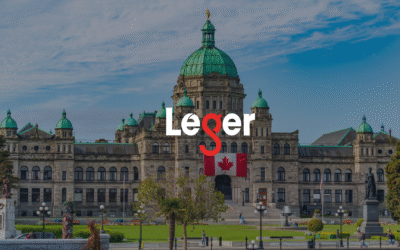Happy Cities
How happy are Canadians? Which cities have a higher happiness index score and how can that score be improved? From March 31 to April 13, 2025, we conducted a web survey among 39,841 Canadians aged 18 and over who could speak either English or French.
This report provides a snapshot of happiness as perceived by Canadian citizens. Based on a large representative sample, it highlights the regional, generational and social dynamics shaping well-being in 2025. Download the full report to discover all the results of Leger’s Happiness Index.
A portrait of contrasts: positive momentum amid real vulnerabilities.
Canadians rate their happiness an average of 68.7 out of 100.
Beneath this average lies a spectrum of different levels:
→ 49% say their happiness has remained stable
→ 28% report a deterioration
→ 23% report an improvement in the past year.
These results reveal a population that is both resilient and tested, affected by everyday uncertainty and challenges. Happiness, while holding its ground overall, shows signs of fragility.
In Canada, Quebec Leads in Happiness
→ With an average of 72.4, Quebec ranks first among Canadian provinces, well above the national average.
→ In contrast, Prince Edward Island (66.5) and Manitoba (66.7) rank among the lowest.
Two Major Canadian Cities Are Doing Well
→ Of Canada’s 10 largest cities, only Mississauga (70.3) and Montreal (69.4) surpass the national average happiness index (68.7).
Methodology
This study is based on a web survey conducted among 39,841 Canadians aged 18 and over who could speak either English or French. The data was collected via LEO, Leger’s proprietary online panel, between March 31 and April 13, 2025. While it is not possible to calculate a margin of error for a non-probability web sample, for comparison purposes, a probability sample of the same size would have a maximum margin of error of ±0.33%, 19 times out of 20. The results were weighted by gender, age, and province to ensure they are representative of the Canadian population.




